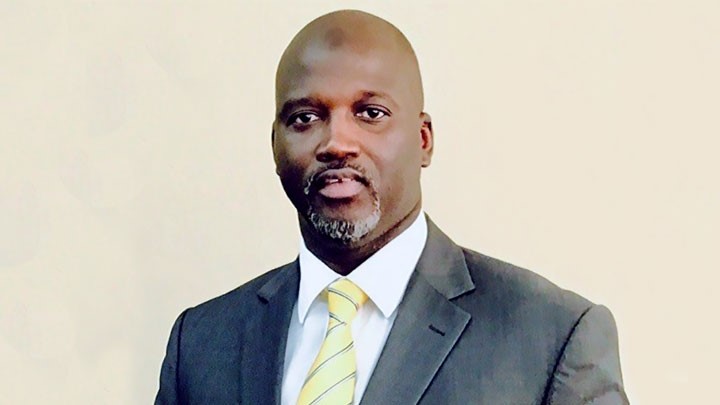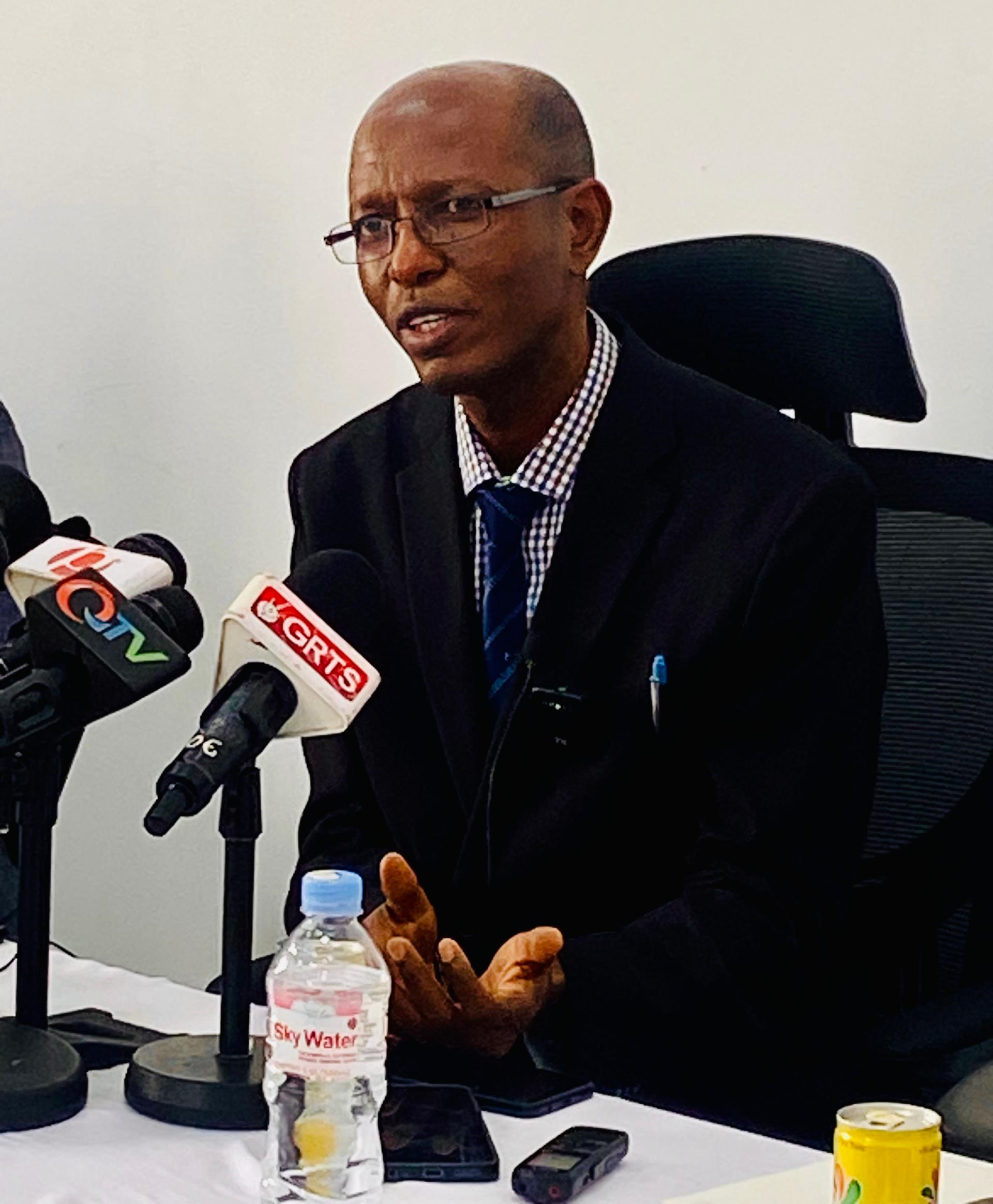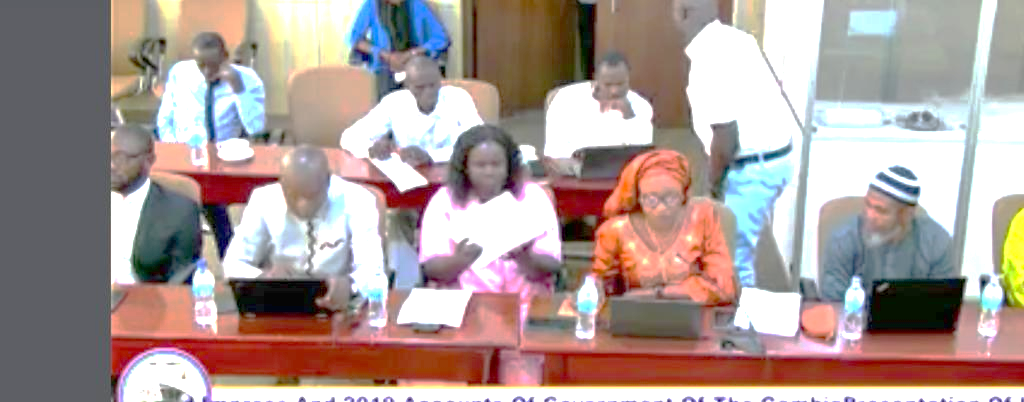By Haddy Touray
Abubacarr Marie Tambadou, former Attorney General and Minister of Justice, has strongly denied any wrongdoing during his three-and-a-half-year tenure, describing the recent public criticism over the sale of former President Yahya Jammeh’s assets as unjust.
He made these remarks during an interview on West Coast Radio’s Coffee Time with veteran broadcaster Peter Gomez on Friday, 9 May 2025. The interview followed a publication by The Republic which triggered youth-led protests demanding the government publish the list of buyers of Jammeh’s properties.
Tambedou, who oversaw the establishment of the Faraba Bantang Commission, the Janneh Commission, and the Truth, Reconciliation and Reparations Commission (TRRC), urged Gambians to be fair and not rush to judgment.
“I have done nothing wrong in all the three and a half years of my tenure as Minister,” he said. “When I tell my side of the story, you will see that I have suffered great injustice in the court of public opinion.”
He emphasized that while some of his decisions may not have pleased everyone, they were not made personally, but were collective decisions taken by the government.
“In all honesty, Mustafa could have had a more informed story if he had done a little more research into my responses,” Tambedou said, referring to The Republic journalist. “He failed to do this, and now we see the consequences.”
Tambedou said the allegation that he manipulated a court decision to unfreeze lands in the Tourism Development Area (TDA) to benefit someone close to him was baseless. He explained that the unfreezing was not a personal move but a government-led initiative to support investment and the upcoming OIC Summit.
Back in 2017, he said, FTI, one of the largest tour operators in Europe, had shown interest in investing in The Gambia. Government had already frozen certain assets under the Anti-Money Laundering Act, which was invoked to temporarily freeze properties while investigations were ongoing.
FTI was identified as a key investor, and the government wanted to allocate TDA land for a five-star hotel project. Tambedou said several meetings were held, including at the Office of the President, with multiple ministers present.
The government also wanted to use part of the TDA lands for OIC infrastructure. The lands in question, he noted, were not legitimately acquired by Jammeh and were allocated to him illegally.
Tambedou stressed that it was a Cabinet decision to isolate the TDA lands and seek their unfreezing, not a personal initiative.
“I would be out of my mind to unilaterally make such a policy decision that the government had taken,” he said. “Many people in Cabinet could be contacted about this decision, and Mustafa missed the opportunity to do so.”
He disclosed that the Ministry filed an application in court to unfreeze the TDA lands, but Justice Amina Saho denied the request. This, he said, discouraged FTI from continuing their investment plans.
He was performing Hajj in Saudi Arabia when the decision came in. The Solicitor General informed him by email on 31 July, and he replied on 2 August. He emphasized that this date matters because it was the last day of the court term before the vacation period.
The report had alleged that the Ministry waited until the court recess to file a new application before another judge. Tambedou said this was false and misleading. The second application was filed during the court vacation due to the timing of the initial ruling.
He said an appeal was considered, but given the urgency to secure investment and proceed with OIC preparations, the Ministry decided on another legal strategy. A memo from the Director of Civil Litigation detailed the options and concluded that seeking administrative remedies such as lease cancellations was more expedient than waiting for an appeal process that could last until December.
The Director’s advice was that the leases were illegal and therefore null and void, and the matter could be regularized through administrative procedures, not court rulings.
Tambedou noted that decisions in the Ministry were always made through consultation and legal opinion.
“Contrary to the report in The Republic, we did consider an appeal. We opted instead for a legal strategy more suited to the urgency of the situation,” he said. “Lawyers make legal strategies all the time.”
He explained that it was not the Attorney General who assigns judges, but the Chief Justice. The second application was heard by Justice Jaiteh during the vacation. Justice Jaiteh later issued a rejoinder, saying he was misquoted and did not say he was “blindfolded” when deciding the case.
Tambedou said this was critical to understanding the process and accused the publication of failing to do basic due diligence.
He also refuted claims that Binta Sompo Ceesay had a particular role in the sale of Jammeh’s assets, and denied allegations that he replaced Augustus Prom with Alpha Barrow, or that he terminated Alagie Mamadi Kurang’s services as Secretary to the Janneh Commission unfairly.
The Voice will continue to follow up on Baa Tambedou’s remarks, particularly regarding the allegations involving Augustus Prom, Binta Sompo Ceesay, Alpha Barry, and Mamadi Kurang.





